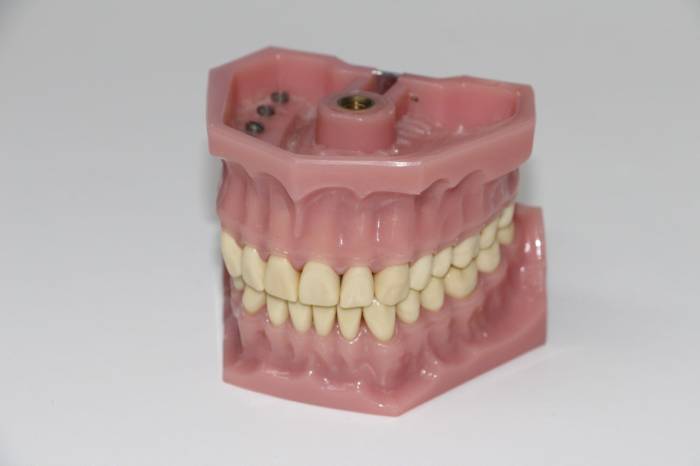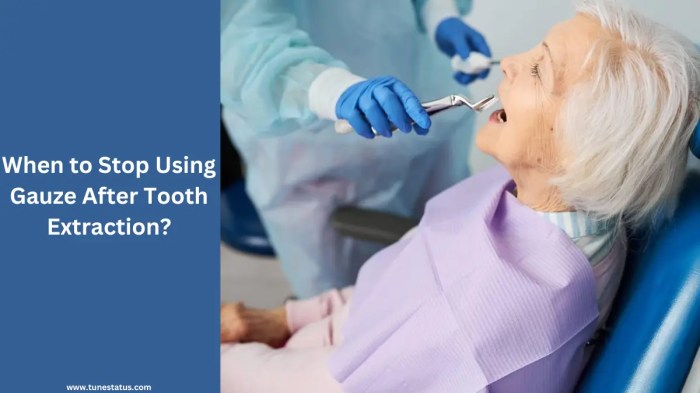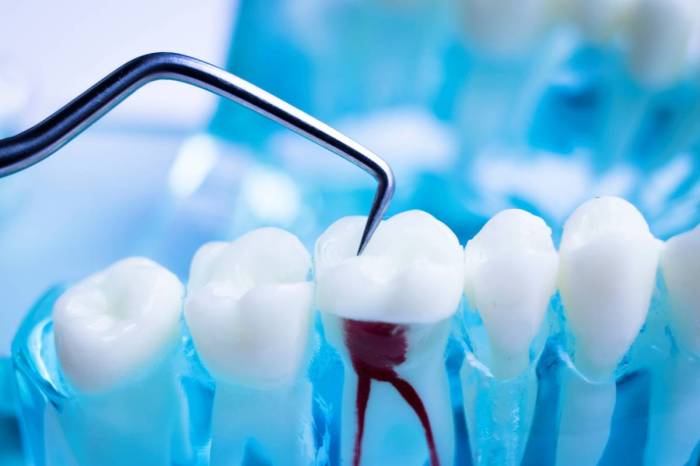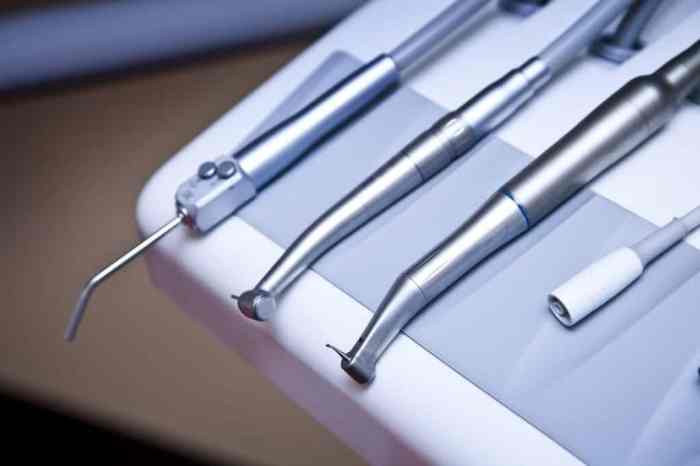How to get dentures is a multifaceted process encompassing various aspects, from initial consultation with a dental professional to ongoing maintenance. Understanding the different types of dentures, the selection process, and the ongoing care is crucial for a successful experience. This guide provides a structured overview, exploring the options available and considerations for a smooth transition to denture use.
Choosing the right dentures involves careful evaluation of individual needs and preferences. Factors like budget, oral health, and desired aesthetic outcome all play a significant role in the decision-making process. This guide delves into the critical steps, ensuring a well-informed approach to acquiring dentures.
Introduction to Dentures
Dentures are prosthetic devices designed to replace missing teeth and restore oral function and aesthetics. They are a common and effective solution for individuals facing tooth loss, offering a range of options tailored to specific needs and preferences. Understanding the different types of dentures and their applications is crucial for making informed decisions about oral health.Dentures are constructed from various materials, each with its own advantages and disadvantages.
The materials used impact the denture’s durability, comfort, and aesthetic appeal. Modern dentures often incorporate advanced materials like acrylic resins, metal frameworks, or a combination of both, to provide a strong, comfortable, and natural-looking restoration.
Types of Dentures
Dentures are broadly categorized into two primary types: full and partial. Full dentures are used when all teeth are missing, while partial dentures replace some missing teeth, preserving existing healthy ones. Understanding the distinctions between these types is vital for choosing the right solution.
Full Dentures
Full dentures are complete replacements for all teeth in the upper or lower jaw. They are fabricated to fit over the gums and are held in place by suction and the surrounding tissues. These dentures are typically made from acrylic resin, which is a durable and affordable material. Sometimes, a metal framework is used for added strength and support.
Examples include complete dentures for individuals with severe tooth loss, who might require a complete restoration for optimal function and aesthetics.
Partial Dentures
Partial dentures are used to replace some missing teeth while preserving the remaining healthy teeth. They consist of a framework, often made of metal, that holds artificial teeth. The framework is connected to clasps that fit around the remaining teeth, providing support and stability. These clasps are typically made of metal, though sometimes of a different material, depending on the design and material of the partial denture.
Partial dentures are a good option for people who want to preserve their existing teeth and restore their ability to chew and speak clearly.
Materials Used in Denture Construction
Dentures are primarily constructed from acrylic resin, a durable and relatively inexpensive material. This material allows for the creation of custom shapes and sizes to fit each patient’s unique mouth. Metal frameworks are also commonly used in denture construction, providing added strength and durability, particularly in partial dentures.
Reasons for Needing Dentures
Numerous factors can lead to the need for dentures, including:
- Tooth loss due to decay: Advanced tooth decay can necessitate the removal of severely damaged teeth, leading to the need for a replacement.
- Tooth loss due to gum disease: Periodontal disease, if left untreated, can result in the loss of supporting structures for teeth, ultimately leading to tooth loss.
- Trauma: Accidents or injuries can lead to the loss of one or more teeth.
- Congenital defects: Some individuals may be born with missing teeth, requiring prosthetic solutions.
- Dental procedures: Extraction of teeth for various reasons, such as orthodontic treatment or to address dental issues, can necessitate the use of dentures.
Comparison of Denture Types
| Denture Type | Pros | Cons |
|---|---|---|
| Full Dentures | Restores complete oral function and aesthetics, especially when all teeth are missing. Offers a complete replacement for lost teeth. | Can sometimes feel bulky or uncomfortable at first. Requires a period of adjustment. May not be as strong as natural teeth or partial dentures, depending on the construction materials and design. |
| Partial Dentures | Preserves remaining healthy teeth, maintaining their function. Can restore a natural appearance and chewing ability. Generally more comfortable than full dentures, especially in the initial period. | Requires more care and maintenance than full dentures. May require additional adjustments over time. Can be less effective for severe tooth loss or when there are limited healthy teeth remaining. |
Finding a Dentist
Choosing the right dentist for your denture needs is crucial for a comfortable and successful experience. Finding a specialist in dentures ensures you receive personalized care tailored to your specific requirements. This process involves understanding the different types of dental practices and asking pertinent questions to select the best fit for you.Finding a qualified dentist specializing in dentures involves a proactive approach.
Researching and comparing options allows you to select a provider who aligns with your needs and expectations. This section details how to locate suitable dentists and what to consider when making your choice.
Types of Dental Practices
Different dental practices specialize in various aspects of oral health. Understanding these distinctions will help you identify the right professional for your denture needs. General dentists are well-versed in routine dental care, including preventative measures, cleanings, and basic restorative procedures. However, they may not have the advanced training or specialized experience in fitting and managing dentures. Prosthodontists, on the other hand, are dental specialists with extensive training in restoring and replacing teeth, including dentures.
They often have more expertise in the complex procedures associated with dentures. Other specialists, such as periodontists, focus on the health of the gums and supporting structures of the teeth, which can be critical for denture stability.
Locating Dentists Offering Denture Services
Several avenues exist for locating dentists specializing in dentures in your area. Online dental directories are readily available and can provide comprehensive information about dentists and their services, including their specialization in dentures. Reviewing online reviews and testimonials from previous patients can offer valuable insights into a dentist’s expertise and patient care approach. Referrals from trusted sources, such as family members, friends, or other healthcare professionals, can also be helpful.
Checking with local dental associations or organizations can lead you to qualified dentists in your area. Finally, contacting dental practices directly to inquire about their denture services is another efficient way to find the right fit.
Questions to Ask a Potential Dentist
Before choosing a dentist for your denture needs, it’s essential to ask pertinent questions. These questions will help you evaluate the dentist’s qualifications, experience, and approach to patient care. A key question to ask is about their experience with different types of dentures, such as complete or partial dentures. Inquiring about their approach to denture maintenance and follow-up care will help determine how well they support your needs after the initial fitting.
It’s also important to ask about their fees and payment options. Understanding the costs involved, including any potential follow-up visits or adjustments, is crucial for financial planning. Finally, you should ask about their communication methods, such as how they respond to concerns and questions.
Denture Fitting and Adjustments
Getting fitted for dentures is a crucial step in ensuring comfort and functionality. This process involves a series of appointments with your dentist to ensure a proper fit and address any potential issues. A well-fitting denture can significantly improve your quality of life, allowing you to eat, speak, and smile with confidence.The denture fitting process is a collaborative effort between you and your dentist.
They will work closely with you to ensure the dentures meet your specific needs and preferences. Careful attention to detail and communication are essential throughout this process. Understanding the steps involved, along with proper oral hygiene, is vital for a positive experience with your dentures.
Denture Fitting Procedure
The denture fitting procedure typically involves several steps. Initially, impressions of your mouth are taken to create a mold of your gums and existing teeth. This mold is then used to craft your dentures. Subsequent appointments often involve adjustments to ensure a snug and comfortable fit. Your dentist will carefully evaluate the fit and address any areas needing refinement.
This process may involve multiple adjustments and refinements before the dentures are considered satisfactory.
Importance of Oral Hygiene for Denture Wearers
Maintaining good oral hygiene is paramount for denture wearers. Dentures, if not properly cleaned, can harbor bacteria, leading to various oral health problems. Regular cleaning with a soft-bristled brush, denture cleanser, and warm water is essential to remove food particles and plaque buildup. Proper denture care prevents gum irritation, bad breath, and other potential complications.
Common Denture-Related Issues and Solutions
Denture wearers may encounter various issues, such as loose dentures or sores. Prompt attention to these problems is crucial for maintaining comfort and oral health.
- Loose Dentures: Loose dentures can be a significant source of discomfort. Factors like gum shrinkage, changes in jawbone structure, or improper fitting can contribute to this issue. Your dentist can reline or adjust the dentures to achieve a secure fit.
- Denture-Induced Sores: Irritation and sores are common issues, particularly in the early stages of denture wear. These often arise from ill-fitting dentures or from neglecting oral hygiene. Your dentist can assess the cause and recommend adjustments to the denture or suggest changes to your oral hygiene routine. In some cases, they may use a softer material or recommend a different type of denture base.
Denture Adjustment Techniques, How to get dentures
Proper denture adjustments are crucial for a comfortable and functional experience. The following table illustrates common issues, potential causes, and solutions:
| Issue | Cause | Solution |
|---|---|---|
| Dentures feeling loose | Gum shrinkage, changes in jawbone structure, or improper initial fitting. | Relining or re-adjusting the dentures by your dentist. In some cases, a new set of dentures might be necessary. |
| Dentures causing sores | Ill-fitting dentures, inadequate oral hygiene, or improper bite. | Adjustments to the denture’s base or shape, modifications to the bite, or a change to oral hygiene routine. Your dentist can help determine the root cause and recommend a suitable solution. |
Denture Care and Maintenance

Proper denture care is crucial for maintaining oral health and ensuring the longevity of your dentures. Consistent cleaning and maintenance practices not only prevent unpleasant odors and discomfort but also help maintain the overall health of your gums and mouth. Following a routine of cleaning and care will also help ensure that your dentures fit comfortably and function effectively.Maintaining your dentures involves more than just a quick rinse.
A diligent approach to cleaning and storing them is essential for optimal oral health and the extended usability of your dentures. This includes regular cleaning, use of appropriate products, and proper storage when not in use.
Essential Steps in Denture Cleaning and Maintenance
A comprehensive denture care routine involves several key steps. These steps are designed to remove food particles, plaque, and other debris that can accumulate on the dentures, contributing to potential oral health issues.
- Soaking: Soaking dentures overnight in a denture cleaner solution is highly recommended to effectively eliminate food particles, plaque, and bacteria. This process is crucial in preventing the buildup of odors and promoting oral hygiene.
- Brushing: Gentle brushing with a soft-bristled toothbrush and denture cleaning paste or a specialized denture cleaner is essential for removing stubborn food particles and maintaining cleanliness. Use a separate toothbrush for your dentures to avoid cross-contamination with your regular oral hygiene routine.
- Rinsing: Thoroughly rinsing your dentures with clean water after brushing and soaking is a vital step in removing any remaining residue or cleaning solution. This ensures a clean and comfortable fit.
Various Denture Cleaning Products and Techniques
Numerous products are available for denture cleaning, catering to various needs and preferences. Choosing the right product can significantly improve your denture cleaning experience.
- Denture Cleaning Tablets/Solutions: These are readily available and effective in removing stains, plaque, and odors. Follow the manufacturer’s instructions carefully for optimal results.
- Denture Cleaning Paste: Similar to toothpaste, but specifically designed for dentures, these pastes contain abrasives and cleaning agents that effectively remove food particles and plaque. Use a gentle, circular motion when brushing your dentures with paste.
- Ultrasonic Cleaners: These specialized cleaners use ultrasonic vibrations to dislodge food particles and plaque, offering a thorough cleaning experience. However, be sure to consult your dentist about the appropriate use of ultrasonic cleaners for your specific dentures.
- Manual Cleaning: Using a soft-bristled toothbrush, warm soapy water, and a gentle scrubbing motion can effectively remove food particles. However, be mindful not to use abrasive materials that could damage your dentures.
Importance of Regular Denture Check-ups with the Dentist
Regular visits to your dentist are critical for maintaining the health of your mouth and dentures. These check-ups allow for early detection of any potential issues and provide personalized recommendations for denture care.
- Professional Cleaning: Professional cleaning by a dental hygienist can remove stubborn stains and plaque that may be difficult to eliminate with home care. This maintenance can significantly contribute to the overall well-being of your mouth.
- Addressing Fit Issues: Dentures can shift or become loose over time. Regular check-ups allow the dentist to identify and address any fit problems promptly, preventing discomfort and further complications.
- Early Detection of Problems: The dentist can identify potential oral health issues, such as gum disease or sores, that may not be noticeable during routine cleaning. Early detection allows for prompt treatment and prevents the progression of these conditions.
How to Properly Store Dentures When Not in Use
Proper storage of dentures when not in use is essential to maintain their shape and prevent damage.
- Designated Denture Case: Using a dedicated denture case is highly recommended to store your dentures safely and prevent them from getting lost or damaged. These cases typically have a moist or cleaning solution to keep the dentures moist.
- Avoid Drying Out: Never store dentures in dry environments as this can lead to warping or cracking. Maintaining consistent moisture is essential for their integrity.
- Avoid Harsh Chemicals: Do not store dentures in solutions containing harsh chemicals or substances that could damage their structure.
Denture Alternatives
Dentures are a common solution for missing teeth, but they aren’t the only option. Several alternative treatments can restore your smile and oral health, each with its own set of benefits and drawbacks. Understanding these alternatives is crucial in making an informed decision about your dental care.
Dental Implant Alternatives
Dental implants are artificial tooth roots surgically placed into the jawbone. They provide a strong foundation for replacement teeth, offering a permanent solution that closely mimics natural teeth.
Cost: Dental implants typically have a higher upfront cost compared to dentures. The price varies based on the number of implants needed, the materials used, and the location of the dental practice. Additional costs for bone grafting or sinus lifts may be necessary in some cases, further increasing the total expense.
Benefits: Implants offer a stable and secure way to replace missing teeth, allowing for improved chewing function and speech clarity. They prevent bone loss in the jaw, which can be a significant advantage in the long run. They look and feel more like natural teeth than dentures, boosting confidence and self-esteem. The restoration provides a long-lasting, durable solution.
Drawbacks: The surgical procedure associated with implant placement carries some risks, such as infection or nerve damage. Healing time can be extensive, and a recovery period is required. Not everyone is a suitable candidate for implants, depending on the jawbone density and overall health. There may be a need for bone grafting procedures to ensure proper implant placement.
Bridges
Dental bridges are fixed restorations that span the gap created by missing teeth. They are supported by adjacent teeth, which act as anchors. These can be a viable alternative for replacing a single or multiple teeth.
Cost: The cost of a dental bridge varies depending on the materials used (e.g., porcelain, metal). The more teeth that need to be replaced, the higher the cost. Factors such as the dentist’s fees and the complexity of the procedure also play a role.
Benefits: Bridges can improve chewing ability and speech clarity, restoring function and aesthetics. They are a more affordable alternative to implants in some cases. A bridge can improve the bite and chewing capabilities and can enhance the overall aesthetic appearance of the smile.
Drawbacks: Bridges require the preparation of healthy adjacent teeth, which may need to be filed down to create a proper fit. This can potentially weaken these teeth over time. A bridge might not be suitable for everyone, depending on the condition of the surrounding teeth. If the adjacent teeth supporting the bridge are damaged or diseased, the bridge may need to be replaced prematurely.
Denture Alternatives Summary Table
| Alternative | Cost | Benefits | Drawbacks |
|---|---|---|---|
| Dental Implants | Higher upfront cost, potential additional costs for bone grafting | Permanent solution, mimics natural teeth, improved chewing and speech, prevents bone loss | Surgical procedure, potential risks, extensive healing time, not suitable for all |
| Bridges | Moderate cost, dependent on materials and complexity | Improved chewing and speech, more affordable than implants in some cases, restores aesthetics | Requires preparation of adjacent teeth, potential weakening of supporting teeth, not suitable for all |
Denture Costs and Insurance
Understanding the financial aspects of getting dentures is crucial for planning. Denture costs can vary significantly, depending on the type of denture, the materials used, and the complexity of the fitting process. Insurance coverage can help offset these expenses, and various financial options exist to make dentures more accessible.Dentures are a significant investment, and the cost can be a major concern for many people.
The price is often influenced by the quality of the materials, the complexity of the design, and the dentist’s expertise. This section will detail average costs, different pricing models, insurance coverage, and financial assistance options, empowering you to make informed decisions about your dental care.
Average Denture Costs
Denture costs vary based on factors such as the type of material (acrylic, porcelain, or a combination), the level of customization, and the number of teeth being replaced. Acrylic dentures are generally less expensive than porcelain or other more advanced materials. Simple complete dentures can range from several hundred to a few thousand dollars, while more complex or customized options can exceed this amount.
Fitting and adjustments are additional costs, often amounting to hundreds of dollars.
Denture Pricing Models
Various pricing models exist for dentures. Some dentists offer a fixed price for a complete set of dentures, while others charge based on materials and labor costs. A common model involves a separate fee for the initial fitting, and additional fees for adjustments or repairs. It’s essential to discuss the pricing model and all associated costs with your dentist upfront.
Examples of Denture Pricing
A basic set of complete acrylic dentures might cost around $1,500 to $3,000, inclusive of the initial fitting. More advanced options, such as dentures with porcelain teeth or custom-designed features, can cost significantly more, potentially exceeding $5,000 or even $10,000.
Dental Insurance Coverage
Dental insurance plans often cover a portion of denture costs, but coverage varies widely. Some plans might cover the entire cost of basic dentures, while others may only cover a percentage. Some plans cover only the initial fitting or provide a limited allowance for adjustments. It is vital to review your insurance policy carefully to understand the extent of coverage.
Contact your insurance provider for a detailed explanation of your plan’s benefits for denture services.
Financial Options for Dentures
Several financial options are available to patients who need dentures. Many dentists offer financing plans, allowing you to pay for dentures over time. Some dental insurance providers also partner with third-party financing companies. Additionally, some local organizations or government programs might offer financial assistance for low-income individuals. It’s recommended to inquire about available payment options directly with your dentist.
You may also explore other financial options like dental savings accounts or personal loans.
Denture Etiquette and Social Considerations
Wearing dentures can be a significant adjustment, but with proper care and awareness, you can maintain confidence and grace in social situations. This section focuses on denture etiquette and helpful tips to ensure a positive and comfortable experience. Understanding the social implications of wearing dentures can help you navigate interactions with ease.Proper denture care plays a crucial role in maintaining a positive self-image and fostering confidence in social settings.
Taking care of your dentures extends beyond personal hygiene; it reflects your overall well-being and consideration for others.
Maintaining Confidence While Wearing Dentures
Confidence is key to navigating social situations with dentures comfortably. Addressing any anxieties about your appearance is vital. Regular maintenance and a positive self-image are essential. Taking care of your dentures is not just about avoiding discomfort; it’s about fostering a positive self-perception.
- Practice makes perfect. Familiarize yourself with speaking and eating with your dentures. This will increase your comfort and reduce the chance of feeling self-conscious.
- Maintain a positive attitude. Focus on the benefits of dentures, such as improved eating and speech, rather than any perceived drawbacks. This positive outlook will naturally radiate confidence.
- Address any concerns early. If you experience any discomfort or have questions, consult your dentist promptly. Early intervention can prevent prolonged issues and promote confidence.
Denture-Related Etiquette
Knowing appropriate etiquette surrounding dentures can foster smoother social interactions. Understanding the nuances of these considerations will help you feel more comfortable and confident.
- Discreet adjustments. If you need to adjust your dentures during a conversation, do so discreetly. For example, gently reposition them with a tissue or napkin, if possible, without drawing undue attention.
- Be mindful of food and drinks. Avoid foods or drinks that could stain your dentures or cause discomfort. Also, be aware of how your dentures might affect the way you consume certain foods.
- Offer appropriate explanations. If a situation arises where a minor adjustment is needed or a question is asked about your dentures, provide a brief and polite explanation. For example, “Thank you, I’m just adjusting my dentures.” or “I’m wearing dentures, and they sometimes need a little repositioning.”
Tips for Maintaining a Positive Self-Image
A positive self-image is crucial for comfortable interactions with others. It involves understanding and accepting your current situation and taking steps to maintain your well-being.
- Focus on the positives. Dentures can restore your ability to eat, speak, and smile confidently. Remind yourself of these advantages.
- Maintain a healthy lifestyle. A balanced diet and regular exercise contribute to overall well-being and confidence. This can also positively affect your denture fit.
- Practice good oral hygiene. Proper oral hygiene helps maintain the health of your gums and mouth, which directly impacts your overall well-being and denture fit.
Concluding Remarks: How To Get Dentures

In conclusion, obtaining dentures requires a thorough understanding of the available options, a proactive approach to dental care, and a commitment to ongoing maintenance. This guide has provided a detailed roadmap, equipping readers with the knowledge to navigate the process effectively. Ultimately, the choice of dentures, whether full or partial, depends on individual needs and preferences, and the guide provides a framework for making an informed decision.
FAQs
What are the different types of dentures?
Dentures are broadly categorized as full or partial. Full dentures replace all teeth, while partial dentures replace some missing teeth, supporting remaining natural teeth. Different materials, such as acrylic and metal, are used in their construction.
How long does the denture fitting process take?
The fitting process typically involves multiple appointments. Initial impressions are taken, followed by adjustments and refinements to ensure a proper fit. The duration varies depending on individual needs and the complexity of the case.
What are some common denture-related issues and their solutions?
Common issues include loose dentures, sores, and discomfort. Solutions often involve adjustments to the denture base, relining, or the use of adhesives. Consulting with a dentist is essential to address these issues promptly.
How often should I visit the dentist for denture check-ups?
Regular check-ups with the dentist are crucial to maintain the health of the mouth and the dentures. The frequency depends on individual oral health and the specific needs of the dentures. Consult your dentist for personalized recommendations.
 Nimila
Nimila



